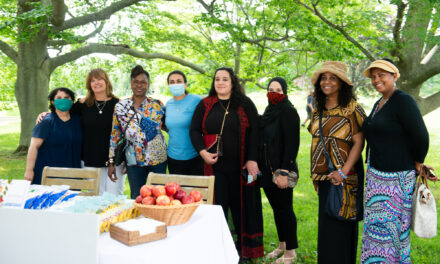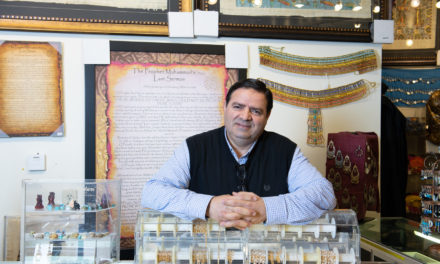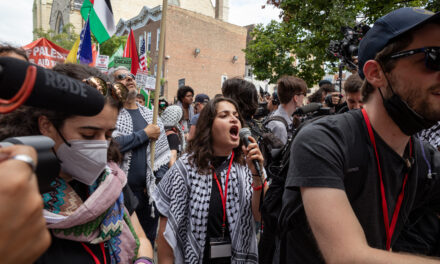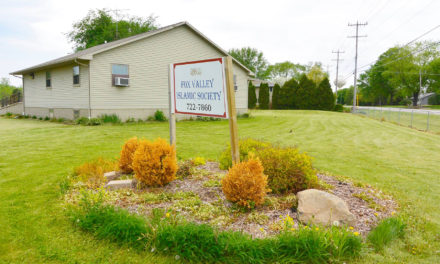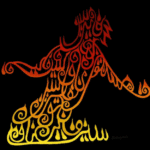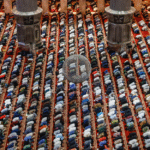
Photo by Manish Swarup/Associated Press
Narendra Modi, sworn in on Sunday for a third term as India’s prime minister, lost his parliamentary majority in the election.
Narendra Modi, whose campaign was filled with anti-Muslim rhetoric, was sworn in Sunday for a third term as India’s prime minister. Nevertheless, the election results give Wisconsin Muslims who immigrated from India hope, they say.
India has one of the world’s largest Muslim populations, with 200 million Muslims, a minority in the predominantly Hindu country. They have often faced discrimination, prejudice and violence, despite constitutional protections.
During Modi’s first two terms, anti-Muslim sentiments heightened, experts say. The Council on Foreign Relations noted that “since Modi’s reelection in 2019, the government has pushed controversial policies that critics say explicitly ignore Muslims’ rights, restrict religious freedoms and are intended to disenfranchise millions of Muslims. Under Modi, violence against Muslims has become more common.”
In the recent election, Modi’s Bharatiya Janata Party (BJP), with its Hindu-nationalist agenda, failed to win a parliamentary majority. Consequently, he had to create a coalition with diverse partners in order to stay in power. Many suggest this shift in power will move Modi’s government towards a more moderate position and bring more equality and justice to India’s diverse population.
Illustrated maps from Pew Research Center
Click on map for access to the Pew Research Center’s 2021 Religious Composition of India report.
Three Indian American members of Greater Milwaukee’s Muslim community spoke with Wisconsin Muslim Journal over the weekend, sharing their views on the election and hopes for the future of their native land.
- Maqsood Khan, M.D., the first Muslim in an elected position in Franklin, has served on the Franklin Public School Board since 2021. He was re-elected to his post in the spring elections. Khan is a gastroenterologist at Aurora West Allis Medical Center and an adjunct assistant professor for Des Moines School of Osteopathic Medicine in Iowa.
- Ali Yar Khan, a pharmacist, has been a Franklin resident for 22 years.
- Mohammad Nowman, is a businessman who serves on the City of Franklin’s Finance Committee.
They are all from or near Hyderabad in south central India, the country’s fourth most populous city. They and their families have been spared the widespread persecution suffered by Muslims in the Hindi belt of the north, they agreed.
Here’s what they had to say:
“The BJP takes its roots from the RSS (Rashtriya Swayamsevak Sangh), a radical movement at the time of independence,” said Maqsood Khan, M.D. “Mahatma Gandhi was assassinated by Nathuram Vinayak Godse, a Hindu fanatic who did not like Gandhi’s call for unity. He believed Gandhi has been too conciliatory to the large Muslim minority. He followed the right-winged political philosophy championed by the RSS, a Hindu nationalist organization.
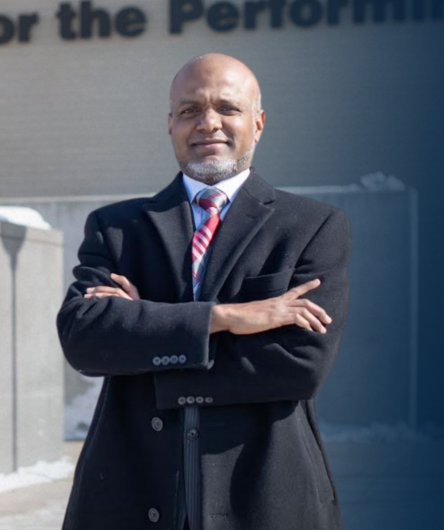
Maqsood Khan, M.D., was re-elected to the Franklin School District Board this spring.
“The BJP takes its roots from that philosophy. It has been trying to seed hatred of Muslims since its beginning. The party was behind the demolition of the 16th Century Babri mosque in 1992, claiming it was built on the site of a temple. They were trying to instigate a division between Hindus and Muslims.
“When Modi was the chief minister of Gujarat, a state in western India, close to 2,000 Muslims were massacred in a riot in 2002. After that, he was banned from getting a U.S. visa (sanctioned under a law making foreign officials ineligible for visas if found responsible for severe violations of religious freedom). That ban was only removed once he became the prime minister of India.
“Dividing the people has always been his policy,” Dr. Khan said. “Muslims and Hindus used to live together in peace for the most part. Although India is a secular state by definition, Modi and the BJP have promoted religious extremism.
“In the last two elections, Modi played the religious card,” Ali Yar Khan added. “He was very inflammatory. At the time, more people were into religious fanaticism and radicalism.
“Even this election, during his campaign he called Muslims ‘infiltrators’ and ‘people who have a lot of children.’ Now the people realize this is not the way to go, that we have been living together peacefully, and are concentrating more on jobs, inflation, education and their future. That’s why the BJP couldn’t win a majority this time.”
“This election has changed things,” Dr. Khan continued. “In the past elections, Modi had a majority and could do what he wanted. Now, because he doesn’t, he must form a coalition with other parties that are more inclusive of Muslims.”
Mohammad Nowman explained, “Out of 543 seats, any party must win 272 seats to hold power. The BJP only got 240. The remainder of the seats will be held by coalition partners who are not anti-Muslim. We are hoping with this coalition, Modi’s feathers are cut.
Video by Aljazeera
Click on the video above to see Aljazeera’s report about accusations against Indian Prime Minister Modi for use of hate speech and divisive use of religion to garner votes.
“Before the elections, the BJP had a big agenda that would negatively impact minorities—not just Muslims, but Christians and others as well. For example, in some states, they talked about reducing the percentage of jobs or spots in education held for minorities. They had also talked about bringing in a uniform civil code. They wanted to take the Hindu code and make it standard for everyone. They were not looking for ways to benefit Muslims or considering what for Muslims is sacred.
“A third thing was their Citizenship Amendment Act that they brought in after their second election in 2019. That act gave any non-Muslims from neighboring countries who were being persecuted the ability to get Indian citizenship—but not Muslims. Never in the history of India has there been such discrimination in policy.
“They also planned to push for a National Registry of Citizens that would disenfranchise hundreds of thousands, maybe even millions of people who would find it very difficult to prove their citizenship because they don’t have records. Especially poor people don’t have birth certificates or land deeds, the kinds of documents that would be required to prove they are citizens.
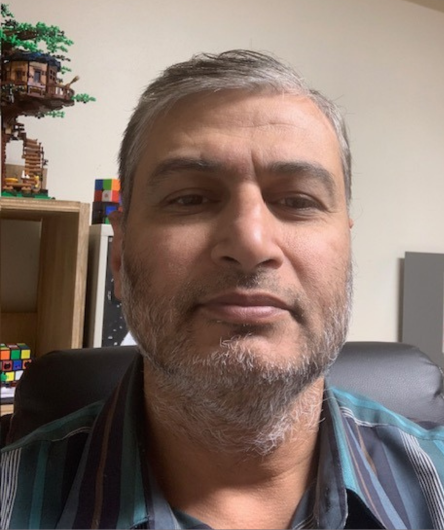
Ali Yar Khan, a pharmacist in Franklin, hopes to see India’s democratic values restored.
“It’s also important to note that the BJP has no Muslim elected candidate in office because they do not support Muslim candidates. Ever since BJP came to power, they have made sure that no Muslims are in top positions in the government. They do not want Muslims to be able to make policy decisions.
“That’s a big thing because in all previous Indian governments, there have been Muslim ministers, at least one who was the Minister of Minority Affairs. For the past 8-10 years, there has been no one in that position.
“From the time of its formation, India was a secular country where Muslims, Hindus, Christians and everyone would live together. And that has largely been the case until the Modi government was first elected in 2014. Since then, minorities—and not just Muslims—have suffered. There have been attacks against Christian churches and schools run by missionaries as well as mosques.
“Fortunately, the voters were smart enough not to give that kind of power to this party,” Nowman said. “They did not get the absolute majority, which means they can’t do whatever they want. They have to rely on their coalition partners.
“The opposition is much stronger now compared to the last election, too. The BJP was becoming more dictatorial, putting opposition leaders in prison without charges or demolishing Muslim homes when there were communal disturbances. With this election, we hope it will no longer be easy for them to do such things. Now the opposition will counter them and push for things that support democracy, like freedom of speech and religion.”
“If you ask Muslims in India, they will tell you they are very happy with the election results,” Ali Yar Khan noted. “Their fears are not completely gone. But now a person who has been responsible for suppression, bulldozing houses, taking young kids from their homes and killing them, beating peaceful student protestors, allowing mob lynchings, you name it, no longer has unlimited power.
“India is a beautiful country. Hopefully, it will regain the values we had before. When I grew up, I had many Christian friends and Hindu friends. We’d visit each other and go to each other’s festivals. For the good of the country, the government cannot favor one community or religious group over another.”



